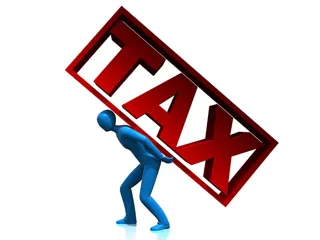Thom Groot, co-founder and CEO of The Electric Car Scheme
Every budget is a series of decisions, and last week the Government made at least one bad one.
Few would wish to swap shoes with Chancellor Jeremy Hunt, particularly as the country faces serious cost of living pressures and worker shortages. This economic situation does not make for easy or obvious choices.
But some things are quite obvious. If your government has committed to getting the country to net-zero emissions, subsidising those emissions is counter-productive.
This is especially the case when you subsidise them at a huge cost to the public purse, with billions of pounds that could be spent on other things - like reducing our carbon emissions.
And yet, that is what the Government did last week when it decided to extend a fuel tax freeze that has been in place since 2011, alongside a “temporary” 5p per litre (ppl) cut introduced more recently.
The idea of these freezes being “temporary” appears to just be fiction so the books add up in the years to come - this government shows no desire to ever let fuel duties rise with inflation, as they are supposed to do automatically.
The effect of this subsidy is that owners of petrol and diesel cars will drive more, and more people will buy new petrol and diesel cars for their personal and corporate use, as they are being subsidised to drive them.
Given transport is the UK’s largest source of emissions and fossil fuel cars are still easily outselling diesel cars this is far from ideal - and is definitely not something the Government should be actively helping.
The idea is that this avoids pain for drivers already facing cost of living pressures.
But research shows that fuel duty cuts benefit the rich far more than the poor, with the top fifth of the UK saving £17bn from various fuel duty freezes while the poorest save just £8bn.
If the aim is to help poorer drivers get around, the money could be spent far better and give those drivers far more help.
And if the aim is just to make sure food prices don’t go up more, why not deliver targeted relief for shipping companies? Instead, the cut encourages fossil fuel car use by everyone.
This is particularly galling as there are changes that would cost a fraction of that eye-watering bill which would help the country green its fleet and lower transport emissions.
The pavement tax on public charging of electric cars is a great example.
Currently, those who charge an electric car in their home pay a VAT rate of 5%, while those who charge at a public charge point pay 20%.
That means that anyone who can afford a driveway or garage gets their electric car charged for a lot less than someone who lives in a smaller property like an apartment or flat.
It’s estimated fixing this would cost just £14m a year - a lot for you or me, but just 0.25% of the cost of the fuel duty freeze!
This is far from the only place the Government could invest to support the green transport transition.
Recent research suggests London has some of the most expensive public transport in the world.
Electric cars remain unaffordable for a lot of households who can’t get one through a salary sacrifice scheme at their work. And we know we need significant investment into charging infrastructure up and down the country.
These necessary investments are being put off, with the Government hoping that sudden technological breakthroughs might make the transition easier towards 2030 before their ban on new fossil fuel cars comes into effect.
The reality is these transitions get harder with time, not easier.
It will be a lot easier to ease the nation’s transport system into a new way of doing things, rather than forcing it hurriedly.
The more we delay the transition, the more likely it becomes that we will not achieve the transition to electric cars, making it self-evident that we miss our climate targets.
> Interested in comparing electric vehicle data? Check out our EV tool.
> Interested in ensuring the efficient use of EVs. Check out our dedicated editorial sections: Insight & policy | EV news | Charging & infrastructure | Costs & incentives | Benefit-in-kind | EV case studies | EV road tests




















Login to comment
Comments
No comments have been made yet.